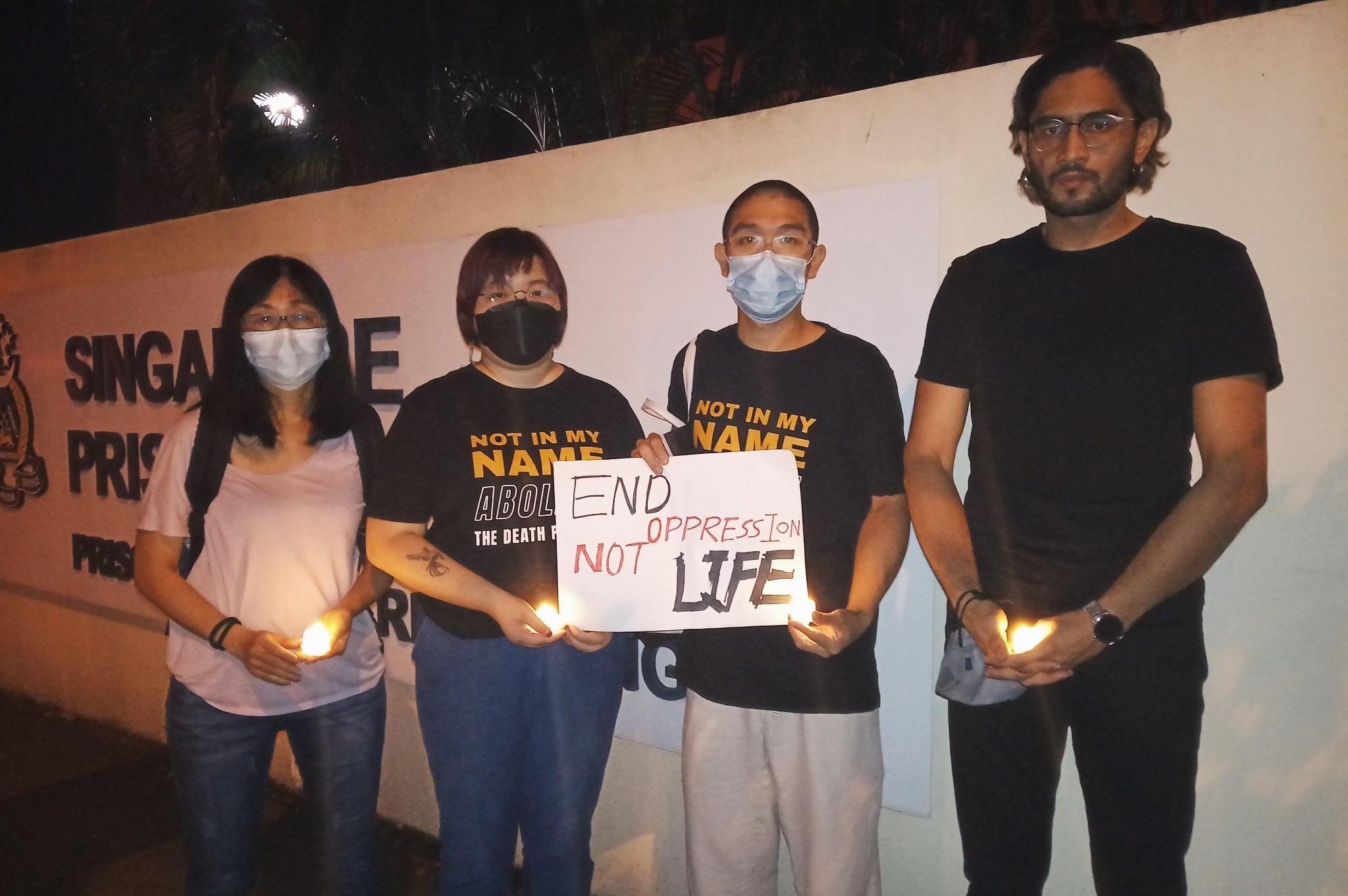Singapore slammed for criminal probe, harassment of rights activists
Rights groups including Amnesty International take the Singapore authorities to task over their investigation into Kirsten Han and Rocky Howe for their work in advocating against the death penalty in the city-state.
Just In
Human rights groups including Amnesty International today hit out at Singapore over its criminal investigation into two activists for their involvement in advocating against the death penalty in the city-state, accusing the authorities of harrassing the duo through legal processes because of their work.
They said Kirsten Han and Rocky Howe, who were interrogated by the police last week under the Public Order Act 2009, were questioned about a peaceful, four-person vigil outside Changi prison on March 30 and a photograph taken outside the prison on April 25.
The vigil was held the night that death row prisoner Abdul Kahar Othman was hanged, while the photograph was taken two nights before the execution of Nagaenthran K Dharmalingam.
In a statement, the rights groups voiced concern over the use of the Public Order Act as well as the fact that Han, who has been vocal against the death penalty, was reportedly asked to surrender access to her Facebook, Twitter and Instagram accounts for the duration of the investigation process.
Adding that no legitimate basis had been given for the request, they said it appeared to be aimed at harassing and intimidating her, as well as restricting her rights to privacy and freedom of expression.
“When she refused, she was informed that she may be further investigated under Section 39(3) of the Criminal Procedure Code for obstructing the police’s exercise of their powers to access her computer,” they added.
The section in question provides for a maximum fine of S$5,000 and/or imprisonment for up to six months.
“The Singaporean authorities have frequently invoked the Public Order Act to investigate, prosecute and convict human rights defenders for the legitimate exercise of their right to freedom of expression, peaceful assembly and association,” the rights groups said.
“The act contains an overly expansive definition of what constitutes a ‘public assembly’ or ‘public procession’, and imposes disproportionately harsh criminal sanctions on those found guilty of organising or taking part in a public assembly or procession without a permit to present to the police.”
The statement was signed by Amnesty International, Article 19, Civicus: World Alliance for Citizen Participation, Forum Asia, Human Rights Watch and the International Commission of Jurists.
Singapore has been under increasing scrutiny of late over its use of the death penalty, especially following its decision to execute Nagaenthran on April 27 despite an international outcry due to his mental disability.
Nagaenthran had an IQ of 69, a level recognised as a disability, and was reportedly coerced into committing the crime of trafficking 43g – about three tablespoons – of heroin into Singapore.
Subscribe to our newsletter
To be updated with all the latest news and analyses daily.
